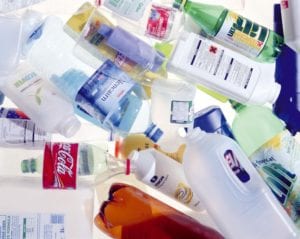Globally, we are ingesting an average of 5 grams of plastic every week, which is the equivalent of a credit card.
This is according to a new study by the University of Newcastle, in Australia. This plastic contamination comes from “microplastics” – particles smaller than five millimeters – which are making their way into our food, drinking water and even the air. Around the world, people ingest an average of around 2,000 microplastic particles a week, according to the study. These tiny particles can originate from a variety of sources, including artificial clothes fibers, microbeads found in some toothpaste, or bigger pieces of plastic which gradually break into smaller pieces when they’re thrown away and exposed to the elements.They make their way into the rivers and oceans and can be eaten by fish and other marine animals, ending up as part of the food chain.
Microplastics have been found in many everyday foods and drinks, such as water, beer, shellfish and salt. “It is very clear that the issue of microplastics is a global one. Even if countries clean up their backyard, it doesn’t mean they will be safe as those [microplastic] particles could be entering from other sources,” said co-lead researcher Kala Senathirajah. The largest source of plastic ingestion is drinking water, according to the research, which reviews 52 existing studies to estimate plastic ingestion around the world. The research was commissioned by the World Wildlife Fund (WWF) for its report “No Plastic in Nature: Assessing Plastic Ingestion from Nature to People.”





